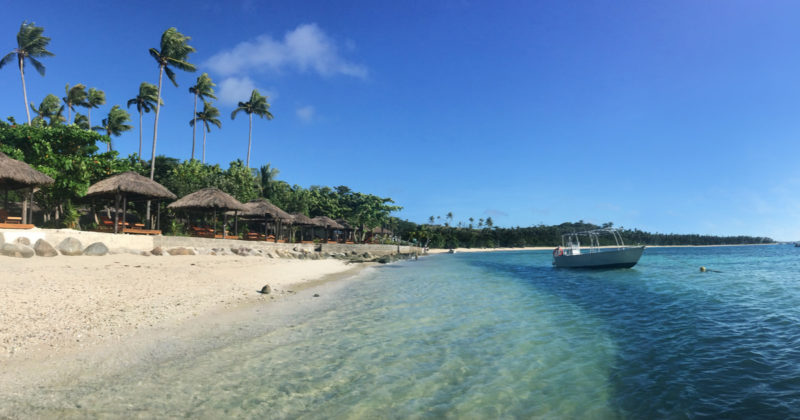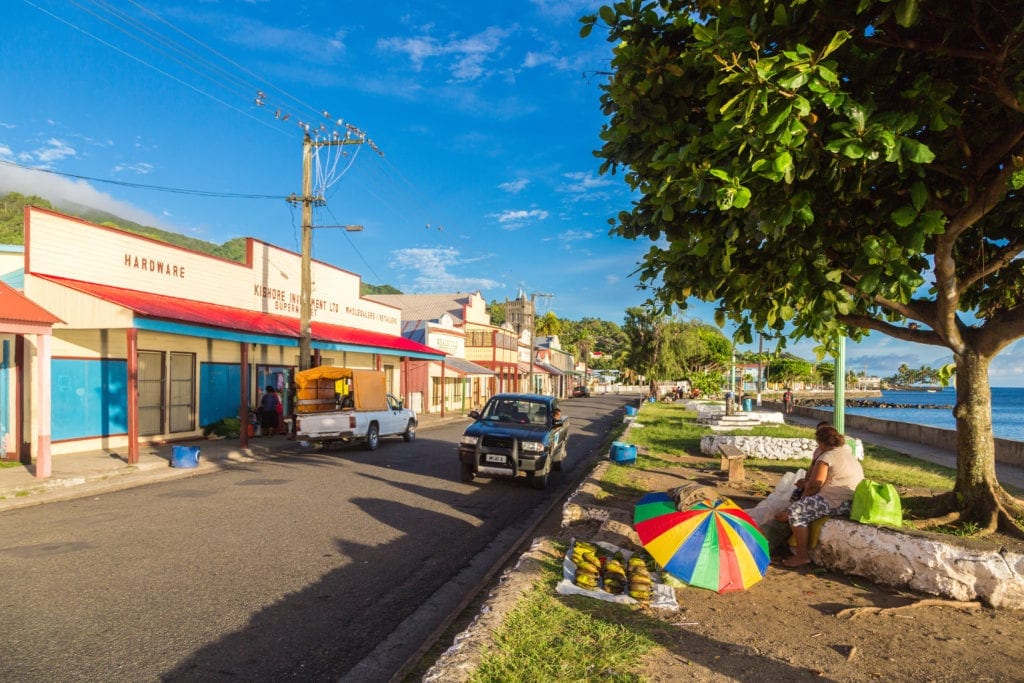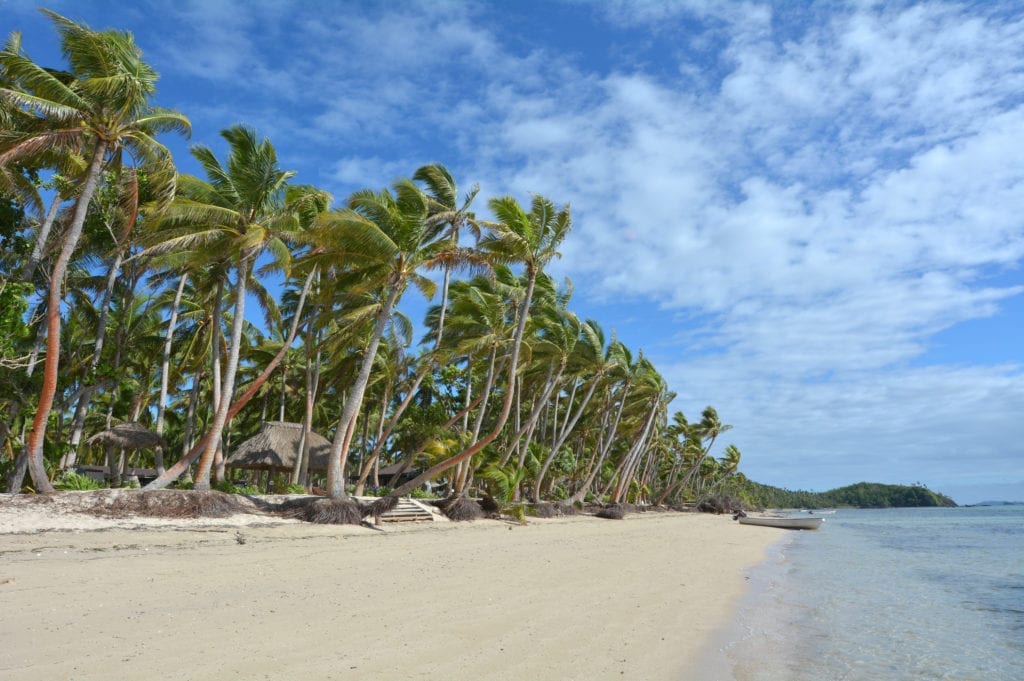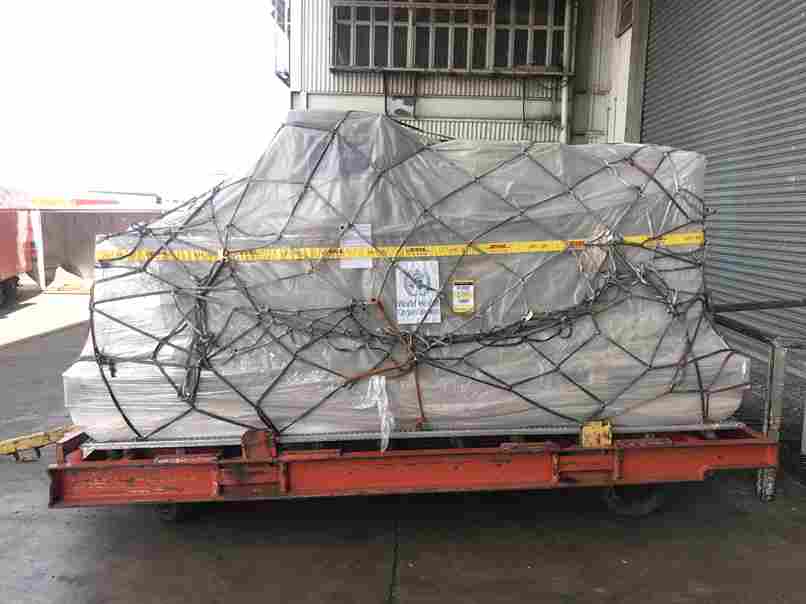
Battered by Covid-19, tourism-reliant Fiji fights to stay afloat

The vast stretch of pristine white sand on Natadola Beach is usually buzzing with activity by the end of this month.
After all, December falls during Fiji’s high season for vacationers looking to celebrate the year-end holiday season. But unlike other years, the atmosphere on the beach — located on Fiji’s main island of Viti Levu — is noticeably less festive without the throngs of tourists this year.
While the island nation has successfully contained the coronavirus, the country is not immune to the pandemic's fallout.
The tourism-reliant economy has taken a massive hit, as Covid-19 led to a dramatic decline in international tourism arrivals and, in turn, tourism receipts.
“Before the pandemic hit our shores, it was unclear what impact it would have on the country,” shared Ray Viegas, Country Manager, DHL Global Forwarding Fiji.
“When Australia and New Zealand — both constituting Fiji’s top visitor arrivals — closed their borders, it started to hit businesses. Many have not recovered since.”
The fight for survival
Like many South Pacific countries, Fiji’s businesses and people rely heavily on imports because of its lack of resources.
With tourism — the backbone of its economy — in the doldrums, imports have also correspondingly declined as lesser resources and necessities are needed.
The weakened demand for global air travel has greatly reduced the number of available passenger flights which, in turn, has driven up the cost of air freight. The price hike has left businesses looking for air freight alternatives, such as shipping by ocean freight or simply making do with local sources.
“Limited freight options have been a concern for local businesses. With our global logistics network, we have been able to maintain a high level of connectivity by moving shipments through Australia or New Zealand to Fiji, and vice versa, with minimal disruptions,” said Viegas.
The pandemic has also adversely impacted the plight of the country’s few key export sectors including sugar, garments, and perishables.
The export volumes and output of sugar have dropped significantly even before the pandemic, with tourism taking its place as the country’s top revenue driver. Now, however, both sectors are struggling to recover as earnings have plunged near zero.
“Fiji is a small country, but this pandemic has shown us just how connected we are to the regional and global economy. Because of our heavy reliance on tourism, we don’t have other major industries that can help us turn things around quickly, or approach this differently,” explained Viegas, a DHL veteran of 28 years.
In the past months, the enforced lockdowns in Australia and New Zealand — Fiji’s largest trading partners — have resulted in the fall in orders for the country’s ailing garment manufacturers. Likewise, the exports of local fish and produce to the United States, Australia and New Zealand have also dwindled as demand wanes amid the pandemic.
Shifting priorities
Few industries would emerge from this crisis unscathed, if at all. Except one that has bucked the trend.
The pharmaceutical sector has been thriving during the pandemic, with rising demand causing a global shortage of personal protective equipment (PPE) and medical devices in its initial stages.
As the fight against Covid-19 continues, Fiji has stepped up to play an important role. With its strategic location in the Pacific, and well-established sea and air connections, it serves as a logistics hub for goods distribution to other Pacific island nations.
Earlier this month, DHL Global Forwarding worked with the World Health Organization (WHO) to distribute aid shipments to eight islands in the Pacific, namely Cook Islands, Kiribati, Nauru, Niue, Solomon Islands, Tokelau, Tuvalu and Tonga.
“Ensuring that the Pacific Island countries have access to the necessary medical equipment and supplies to prepare for and respond to Covid-19 is a priority for the World Health Organization. But reaching such remote places, especially when so many airports are closed, is a huge logistical challenge.” said Dr. Takeshi Kasai, WHO Regional Director for the Western Pacific. “WHO is happy to be working with our partners like DHL to be able to make this happen.”
Airfreighted from Singapore to Fiji in three tranches, the shipments contained medical devices including oxygen concentrator sets, patient monitors, and pulse oximeters, which were donations to the Pacific islands by WHO.
Such essential shipments remain vital for DHL Global Forwarding. However, the revival of tourism in the country is still the catalyst that will jump-start the economy and the logistics sector.
With international borders unlikely to reopen soon, the country’s recovery from the pandemic could take years, warned Fiji's Prime Minister Voreqe Bainimarama in June.
Echoing experts from the tourism, airline, and ocean freight sectors, Viegas is more sanguine about the prospects of the nation’s economy, with hopes of it returning to normalcy in early 2022.
“This is by far the biggest crisis we have managed, but we have to ride the storm. Our top priority now is to ensure we support our existing customers in their logistics needs as best as we can. We’re also ready to help other businesses who have encountered difficulties or disruptions in their import process,” said Viegas.
“Ultimately, when things normalize, we want to be able to tell our customers that we were there for them during the tough times, and that we’ll continue to support them.”










 English
English